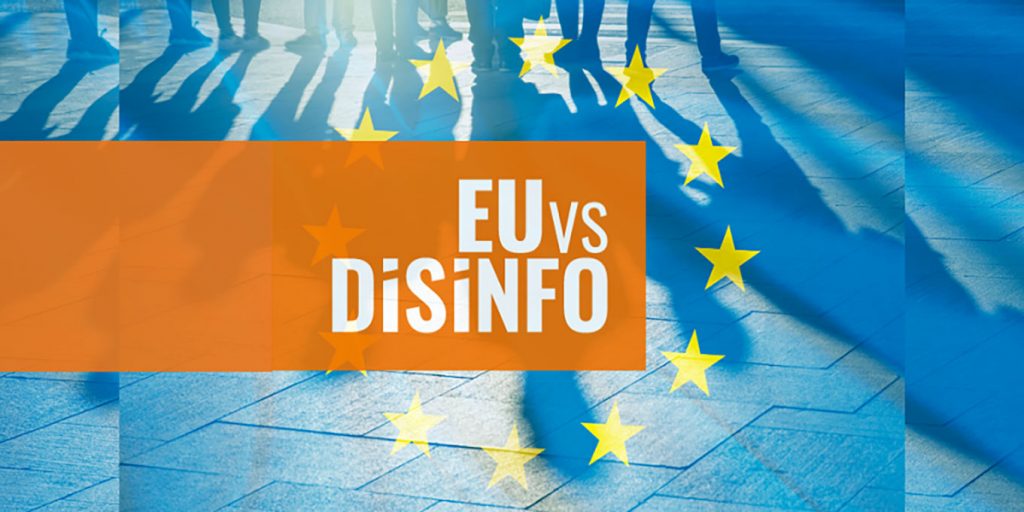Source — EUvsDiSiNFO gsclibrary — 20 January 2023
Table of Contents
Countering disinformation
The fight against disinformation is a long-term challenge for European democracies and societies. Disinformation undermines the trust of citizens in democracy and democratic institutions. It also contributes to the polarisation of public views and interferes in democratic decision-making processes.
Countering disinformation has become particularly urgent in the context of the Russian war in Ukraine. A disinformation campaign of an unparalleled magnitude has been carried out by Russia since the eve of and during its war of aggression against Ukraine began on 24 February 2022. As part of the Kremlin’s hybrid warfare, Ukraine is a target of propaganda and disinformation spread by the Kremlin and other pro-Russian groups.

The EU response to disinformation
Following the call of the European Council in March 2015 for actions to challenge Russia’s ongoing disinformation campaigns, the EU has strengthened its capabilities to identify and counter disinformation and deal with hybrid threats. Among these initiatives, the European External Action Service (EEAS) East StratCom Task Force established the EUvsDisinfo platform. Its mandate is to forecast, address, and respond to Russia’s disinformation campaigns affecting the European Union, its Member States, and countries in the region.
Since February 2022, EU vs Disinformation has tracked more than 237 disinformation cases relating to Ukraine, and more than 5,500 total disinformation cases about Ukraine since its establishment in 2015 (out of more than 13,000 total examples of pro-Kremlin disinformation).
Learn more about pro-Kremlin disinformation
The Council Library guide provides access to a selection of books and research papers, decisions and measures taken at EU level, selected podcasts and videos, and well-documented websites.
This post does not necessarily represent the positions, policies or opinions of the Council of the European Union or the European Council.
The Council Library reading room is open Monday to Friday from 12.30 to 15.30. The Info Desk operates during office hours from Monday to Friday.
It is open to all staff of the Council of the European Union and the European Council, trainees, permanent representations of member states, staff of other EU institutions and bodies, and to researchers and students upon request. Access to some library holdings may be restricted to on-site consultation.
- Subscribe to the Library blog
- Tweet #eucolibrary
- Tackling
- Tackling Disinformation, Foreign Information Manipulation & Interference
Tackling Disinformation, Foreign Information Manipulation & Interference
Foreign Information Manipulation and Interference (FIMI) – also often labelled as “disinformation” – is a growing political and security challenge for the European Union. The capacity of the EEAS to address the FIMI challenge has grown significantly since 2015, when the problem first appeared on the EU’s political agenda. In addition to a more precise understanding and diagnosis of the problem – from ‘fake news’, to ‘disinformation’, to Foreign Information Manipulation and Interference – the EEAS has been developing and improving the means to prevent, deter and respond to FIMI. It has done so in close contact and collaboration with other EU institutions, Member States, international partners such as the G7 and NATO, civil society organizations, academia, journalists, media and private industry. In addition, the three Strategic Communications Task Forces cover and help respond to FIMI activity in the Eastern Partnership, the Southern Neighbourhood and the Western Balkans. The EEAS is also working to protect its CSDP missions abroad and build capacities of EU Delegations to address FIMI.
Defining FIMI – FIMI is a mostly non-illegal pattern of behaviour that threatens or has the potential to negatively impact values, procedures and political processes. Such activity is manipulative in character, conducted in an intentional and coordinated manner. Actors of such activity can be state or non-state actors, including their proxies inside and outside of their own territory. (Source: EEAS)










